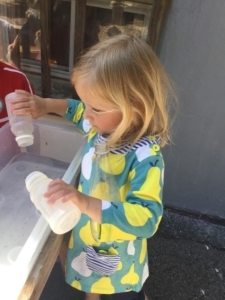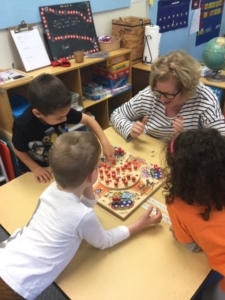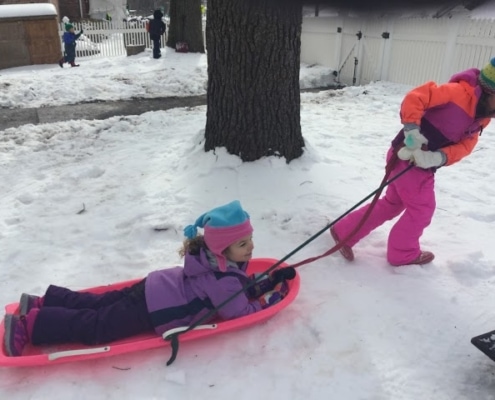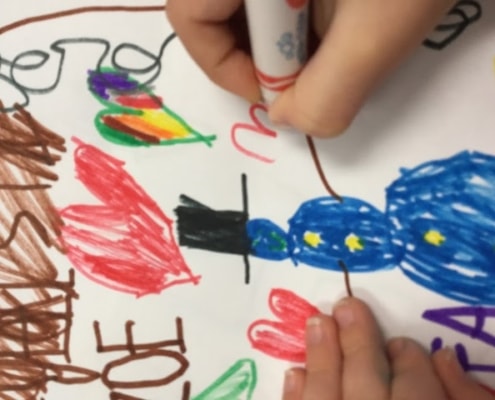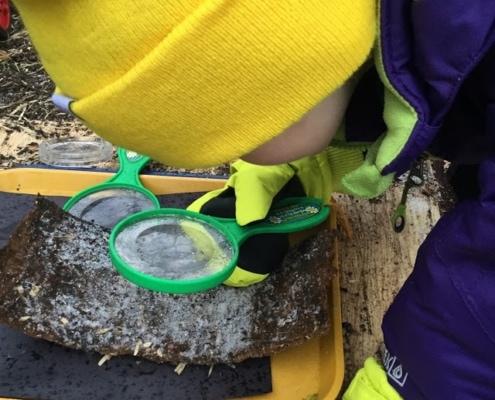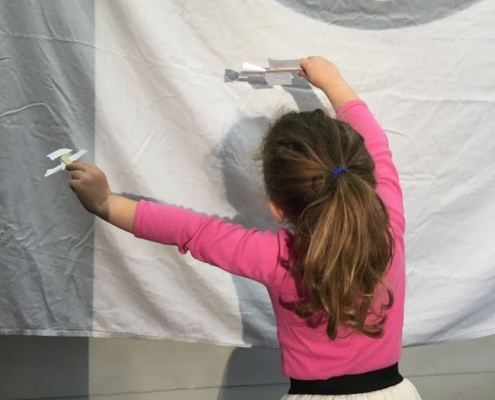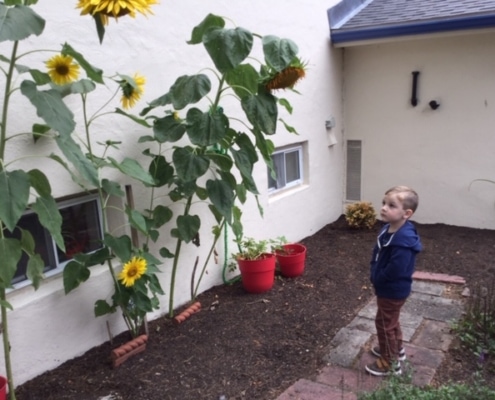Our Belief and Approach
Great Expectations believes that children are most successful when they are active agents in their learning experiences with teachers as facilitators. Classrooms and materials are arranged intentionally to encourage socialization, exploration, and the mastery of skills at each child’s level as an individual. Children learn through their play and build understanding of the world through a process of inquiry and reflection. Play is honored, and the curriculum emerges from these interactions with the environment, peers, and teachers.
Our approach is eclectic and draws from multiple educational theories and teaching methods. Through careful observations, thoughtful interactions, and detailed planning the teachers guide children to investigate and wonder about their environment and the world around them. Teachers plan and inspire investigations and ongoing, integrated projects that allow children to follow their interests. Focuses of study are developed exploring topics that emerge based on the interests of your children such as how things are made, ramps, water, houses, light, rainbows, and feelings – the list is endless and never quite the same from year to year.
Children gain knowledge and meaning from their experiences with materials and teacher guidance. Language and math is part of our everyday life at school and is explored developmentally throughout the curriculum. You will see evidence everywhere: items and areas labeled, words dictated by children, writing centers, experience charts, signs, journals, listening centers, and a wide selection of books in library and science areas. Mathematical experiences are woven throughout the school day as well: manipulative tables and block areas with classifying and sorting activities, graphs and charts depicting the results of votes cast or recipes to follow, and many opportunities for counting, measuring, weighing and comparing.
Teachers seek out teachable moments continuously throughout the day. Teachable moments are spontaneous opportunities to work with individuals or small groups of children during their play to facilitate their development socially, emotionally, physically, and cognitively through open-ended questioning and enriching conversations. It is well documented that the child/teacher relationship along with a rich and stimulating environment promotes the development of eager, confident learners. It is our belief that hands-on exploration encourages children to be critical thinkers who are curious and question why or how things happen, thus providing the foundation for a much deeper understanding of concepts rather than rote memorization.


